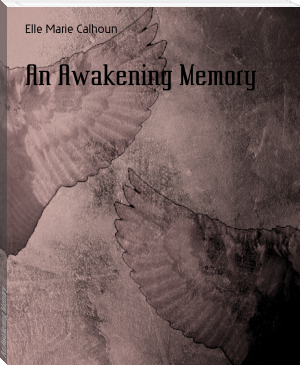Apocalypse - Ellen G. White (good book club books txt) 📗

- Author: Ellen G. White
Book online «Apocalypse - Ellen G. White (good book club books txt) 📗». Author Ellen G. White
Sentence having been pronounced, the ceremony of degradation began. The bishops clothed their prisoner in the sacerdotal habit, and as he took the priestly robe, he said: "Our Lord Jesus Christ was covered with a white robe, by way of insult, when Herod had Him conducted before Pilate."-- Ibid., vol. 2, p. 86. Being again exhorted to retract, he replied, turning toward the people: "With what face, then, should I behold the heavens? How should I look on those multitudes of men to whom I have preached the pure gospel? No; I esteem their salvation more than this poor body, now appointed unto death." The vestments were removed one by one, each bishop pronouncing a curse as he performed his part of the ceremony. Finally "they put on his head a cap or pyramidal-shaped miter of paper, on which were painted frightful figures of demons, with the word 'Archheretic' conspicuous in front. 'Most joyfully,' said Huss, 'will I wear this crown of shame for Thy sake, O Jesus, who for me didst wear a crown of thorns.'"
When he was thus arrayed, "the prelates said, 'Now we devote thy soul to the devil.' 'And I,' said John Huss, lifting up his eyes toward heaven, 'do commit my spirit into Thy hands, O Lord Jesus, for Thou hast redeemed me.'"--Wylie, b. 3, ch. 7. He was now delivered up to the secular authorities and led away to the place of execution. An immense procession followed, hundreds of men at arms, priests and bishops in their costly robes, and the inhabitants of Constance. When he had been fastened to the stake, and all was ready for the fire to be lighted, the martyr was once more exhorted to save himself by renouncing his errors. "What errors," said Huss, "shall I renounce? I know myself guilty of none. I call God to witness that all that I have written and preached has been with the view of rescuing souls from sin and perdition; and, therefore, most joyfully will I confirm with my blood that truth which I have written and preached."-- Ibid., b. 3, ch. 7. When the flames kindled about him, he began to sing, "Jesus, Thou Son of David, have mercy on me," and so continued till his voice was silenced forever.
Even his enemies were struck with his heroic bearing. A zealous papist, describing the martyrdom of Huss, and of Jerome, who died soon after, said: "Both bore themselves with constant mind when their last hour approached. They prepared for the fire as if they were going to a marriage feast. They uttered no cry of pain. When the flames rose, they began to sing hymns; and scarce could the vehemency of the fire stop their singing."-- Ibid., b. 3, ch. 7. When the body of Huss had been wholly consumed, his ashes, with the soil upon which they rested, were gathered up and cast into the Rhine, and thus borne onward to the ocean. His persecutors vainly imagined that they had rooted out the truths he preached. Little did they dream that the ashes that day borne away to the sea were to be as seed scattered in all the countries of the earth; that in lands yet unknown it would yield abundant fruit in witnesses for the truth. The voice which had spoken in the council hall of Constance had wakened echoes that would be heard through all coming ages.
Huss was no more, but the truths for which he died could never perish. His example of faith and constancy would encourage multitudes to stand firm for the truth, in the face of torture and death. His execution had exhibited to the whole world the perfidious cruelty of Rome. The enemies of truth, though they knew it not, had been furthering the cause which they vainly sought to destroy. Yet another stake was to be set up at Constance. The blood of another witness must testify for the truth. Jerome, upon bidding farewell to Huss on his departure for the council, had exhorted him to courage and firmness, declaring that if he should fall into any peril, he himself would fly to his assistance. Upon hearing of the Reformer's imprisonment, the faithful disciple immediately prepared to fulfill his promise. Without a safe-conduct he set out, with a single companion, for Constance. On arriving there he was convinced that he had only exposed himself to peril, without the possibility of doing anything for the deliverance of Huss.
He fled from the city, but was arrested on the homeward journey and brought back loaded with fetters and under the custody of a band of soldiers. At his first appearance before the council his attempts to reply to the accusations brought against him were met with shouts, "To the flames with him! to the flames!"--Bonnechose, vol. 1, p. 234. He was thrown into a dungeon, chained in a position which caused him great suffering, and fed on bread and water. After some months the cruelties of his imprisonment brought upon Jerome an illness that threatened his life, and his enemies, fearing that he might escape them, treated him with less severity, though he remained in prison for one year.
The death of Huss had not resulted as the papists had hoped. The violation of his safe-conduct had roused a storm of indignation, and as the safer course, the council determined, instead of burning Jerome, to force him, if possible, to retract. He was brought before the assembly, and offered the alternative to recant, or to die at the stake. Death at the beginning of his imprisonment would have been a mercy in comparison with the terrible sufferings which he had undergone; but now, weakened by illness, by the rigors of his prison house, and the torture of anxiety and suspense, separated from his friends, and disheartened by the death of Huss, Jerome's fortitude gave way, and he consented to submit to the council. He pledged himself to adhere to the Catholic faith, and accepted the action of the council in condemning the doctrines of Wycliffe and Huss, excepting, however, the "holy truths" which they had taught.-- Ibid, vol. 2, p. 141.
By this expedient Jerome endeavoured to silence the voice of conscience and escape his doom. But in the solitude of his dungeon he saw more clearly what he had done. He thought of the courage and fidelity of Huss, and in contrast pondered upon his own denial of the truth. He thought of the divine Master whom he had pledged himself to serve, and who for his sake endured the death of the cross. Before his retraction he had found comfort, amid all his sufferings, in the assurance of God's favour; but now remorse and doubts tortured his soul. He knew that still other retractions must be made before he could be at peace with Rome. The path upon which he was entering could end only in complete apostasy. His resolution was taken: To escape a brief period of suffering he would not deny his Lord.
Soon he was again brought before the council. His submission had not satisfied his judges. Their thirst for blood, whetted by the death of Huss, clamoured for fresh victims. Only by an unreserved surrender of the truth could Jerome preserve his life. But he had determined to avow his faith and follow his brother martyr to the flames. He renounced his former recantation and, as a dying man, solemnly required an opportunity to make his defense. Fearing the effect of his words, the prelates insisted that he should merely affirm or deny the truth of the charges brought against him. Jerome protested against such cruelty and injustice. "You have held me shut up three hundred and forty days in a frightful prison," he said, "in the midst of filth, noisomeness, stench, and the utmost want of everything; you then bring me out before you, and lending an ear to my mortal enemies, you refuse to hear me. . . . If you be really wise men, and the lights of the world, take care not to sin against justice. As to me, I am only a feeble mortal; my life is but of little importance; and when I exhort you not to deliver an unjust sentence, I speak less for myself than for you."-- Ibid., vol. 2, pp. 146, 147.
His request was finally granted. In the presence of his judges, Jerome kneeled down and prayed that the divine Spirit might control his thoughts and words, that he might speak nothing contrary to the truth or unworthy of his Master. To him that day was fulfilled the promise of God to the first disciples: "Ye shall be brought before governors and kings for My sake. . . . But when they deliver you up, take no thought how or what ye shall speak: for it shall be given you in that same hour what ye shall speak. For it is not ye that speak, but the Spirit of your Father which speaketh in you." Matthew 10:18-20.
The words of Jerome excited astonishment and admiration, even in his enemies. For a whole year he had been immured in a dungeon, unable to read or even to see, in great physical suffering and mental anxiety. Yet his arguments were presented with as much clearness and power as if he had had undisturbed opportunity for study. He pointed his hearers to the long line of holy men who had been condemned by unjust judges. In almost every generation have been those who, while seeking to elevate the people of their time, have been reproached and cast out, but who in later times have been shown to be deserving of honour. Christ Himself was condemned as a malefactor at an unrighteous tribunal.
At his retraction, Jerome had assented to the justice of the sentence condemning Huss; he now declared his repentance and bore witness to the innocence and holiness of the martyr. "I knew him from his childhood," he said. "He was a most excellent man, just and holy; he was condemned, notwithstanding his innocence. . . . I also--I am ready to die: I will not recoil before the torments that are prepared for me by my enemies and false witnesses, who will one day have to render an account of their impostures before the great God, whom nothing can deceive."--Bonnechose, vol. 2, p. 151.
In self-reproach for his own denial of the truth, Jerome continued: "Of all the sins that I have committed since my youth, none weigh so heavily on my mind, and cause me such poignant remorse, as that which I committed in this fatal place, when I approved of the iniquitous sentence rendered against Wycliffe, and against the holy martyr, John Huss, my master and my friend. Yes! I confess it from my heart, and declare with horror that I disgracefully quailed when, through a dread of death, I condemned their doctrines. I therefore supplicate . . . Almighty God to deign to pardon me my sins, and this one in particular, the most heinous of all." Pointing to his judges, he said firmly: "You condemned Wycliffe and John Huss, not for having shaken the doctrine of the church, but simply because they branded with reprobation the scandals proceeding from the clergy--their pomp, their pride, and all the vices of the prelates and priests…The things which they have affirmed, and which are irrefutable, I also think and declare, like them."
His words were interrupted. The prelates, trembling with rage, cried out: "What need is there of further proof? We behold with our own eyes the most obstinate of heretics!" Unmoved by the tempest, Jerome exclaimed: "What! do you suppose that I fear to die? You have held me for a whole year in a frightful dungeon, more horrible than death itself. You have treated me more cruelly than a Turk, Jew, or pagan, and my flesh has literally rotted off my bones alive; and yet I make no complaint, for lamentation ill becomes a man of heart and spirit; but I cannot but express my astonishment at such great barbarity toward a Christian."-- Ibid., vol. 2, pp. 151-153. Again the storm of rage burst out, and Jerome was hurried away to prison. Yet there were some in the assembly upon whom his words had made a deep impression and who desired to save his





Comments (0)